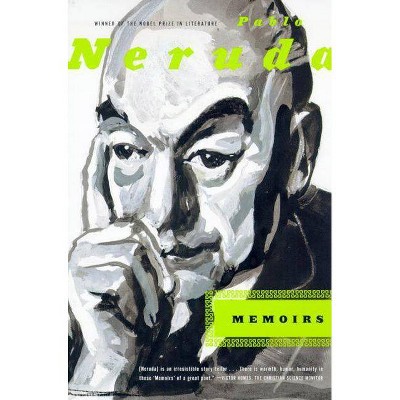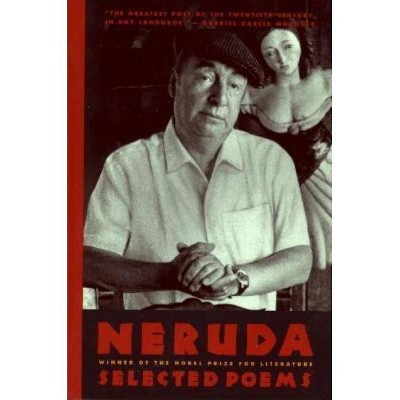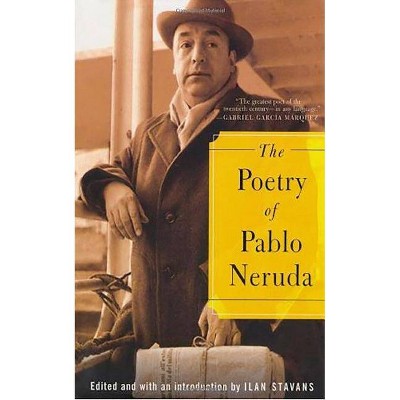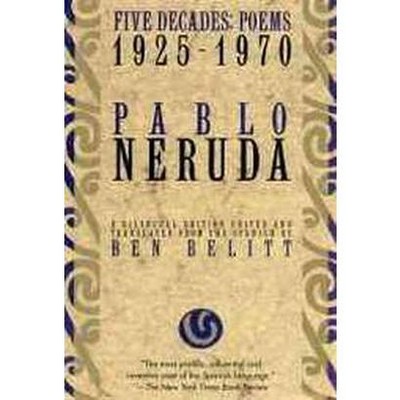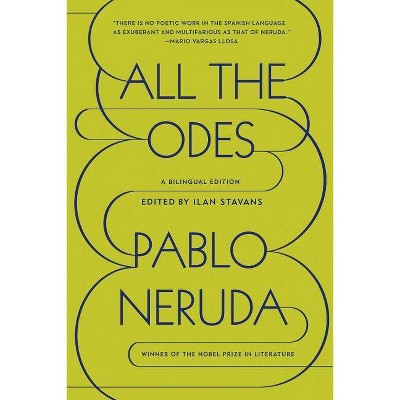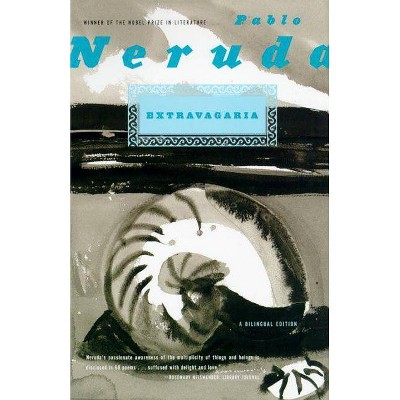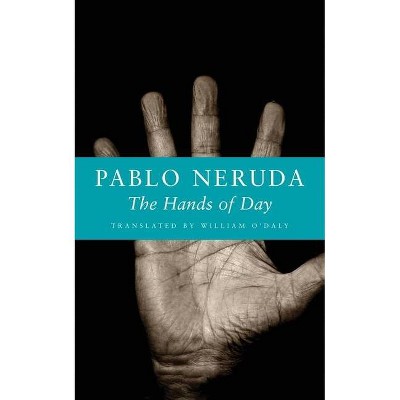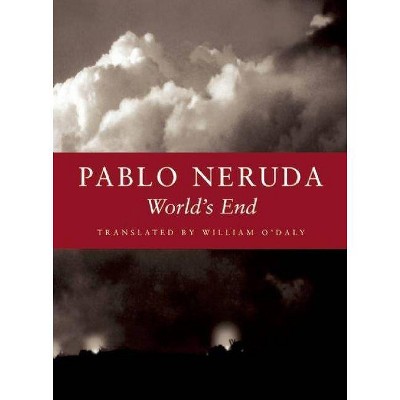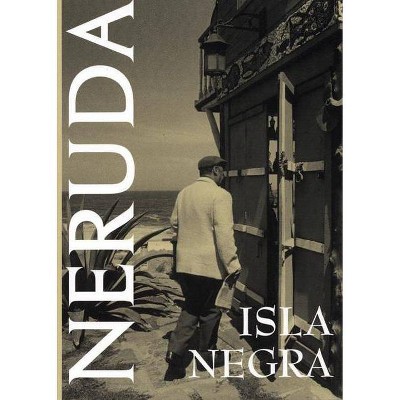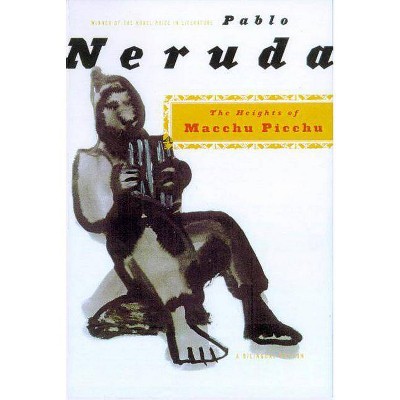The Complete Memoirs - by Pablo Neruda (Paperback)
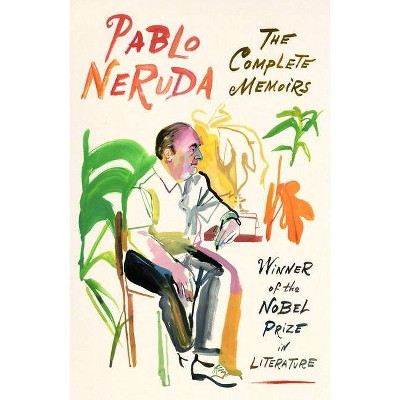
Similar Products
Products of same category from the store
AllProduct info
<p/><br></br><p><b> Book Synopsis </b></p></br></br><p><b>The classic memoir of the Nobel Prize-winning poet, now expanded with newly discovered material</b> <p/>Southern Chile was an open frontier when the beloved poet Pablo Neruda was born there in 1904. A motherless, pensive child in the wild, he began writing poems long before quitting the countryside for Santiago, where he spent his bohemian student years. From there, his memoir follows his travels as a globetrotting Chilean consul--including a stint in Spain during its civil war, and in Mexico, where he attracted attention for aiding a man suspected of conspiring to assassinate Leon Trotsky--and his short-lived service as a Chilean senator. Neruda, a communist, was driven from his senate seat in 1948, and a warrant was issued for his arrest. After a year in hiding, he escaped on horseback over the Andes, then to Europe and Asia. The memoirs conclude shortly after the coup in 1972 that overthrew his close friend Salvador Allende, Chile's first democratically elected president, as Neruda himself battled cancer. <p/>Now expanded to include newly discovered material, <i>The Complete Memoirs </i>is the definitive edition of Neruda's classic memoir--a moving, revealing record of his life as a poet, a patriot, and one of the twentieth century's true men of conscience.</p><p/><br></br><p><b> Review Quotes </b></p></br></br><br><p>"[A] masterpiece memoir . . . First published in 1974, the year following his death, and now released with newly discovered material, this expanded version of his memoirs gives color to the tumultuous story of his life . . . In his memoirs, Neruda shares himself through the language of someone who spent a life thinking in poetry. From chapter to chapter, he grounds the episodes that shaped him in the intimate recollection of unforgettable people, hidden spaces, new flavors, and secret conversations. This is the revelatory self-portrait of a man whose contemporary, Gabriel García Márquez, another legend of Latin literature, once called 'the greatest poet of the 20th century in any language.' --<b>Mark Libatique, <i>Avenue</i></b></p><br><p/><br></br><p><b> About the Author </b></p></br></br><p><b>Pablo Neruda</b> (1904-1973), one of the most renowned poets of the twentieth century, was born in Parral, Chile. He shared the World Peace Prize with Paul Robeson and Pablo Picasso in 1950, and was awarded the Nobel Prize in Literature in 1971. His books include <i>Residence on Earth</i>, <i>Canto General</i>, <i>Extravagaria</i>, and<i> Isla Negra</i>. <p/><b>Hardie St. Martin </b>translated work by Vincente Aleixandre, Roque Dalton, Enrique Lihn, Nicanor Parra, and Luisa Valenzuela, among others. He was the recipient of a John Simon Guggenheim fellowship in 1965, a P.E.N. International Translation Award, and an ALTA award for excellence in editing and translation. His anthology of Spanish poetry, <i>Roots and Wings, </i> is still considered a literary landmark. Hardie died September 3, 2007. <p/><b>Adrian Nathan West </b>is the author of <i>The Aesthetics of Degradation</i>. He is a contributor to the <i>Times Literary Supplement</i> and the <i>Literary Review</i>; his essays, short fiction and translations have also appeared in the New York Review of Books, McSweeney's, the London Review of Books and other publications. He has translated books from German, Catalan, Spanish and French by authors such as Josef Winkler, Pere Gimferrer and Marianne Fritz.</p>
Price History
Price Archive shows prices from various stores, lets you see history and find the cheapest. There is no actual sale on the website. For all support, inquiry and suggestion messagescommunication@pricearchive.us
